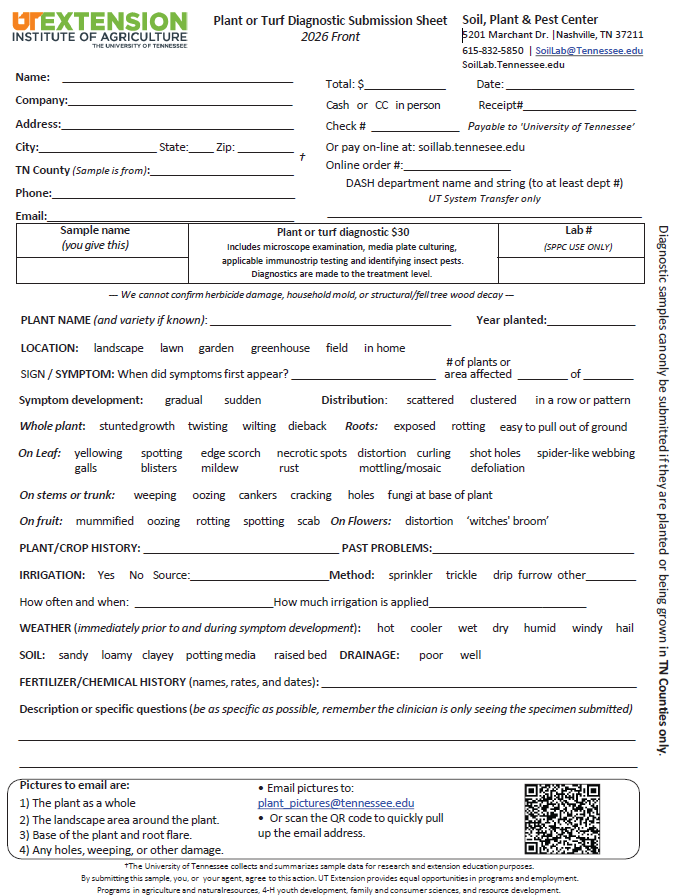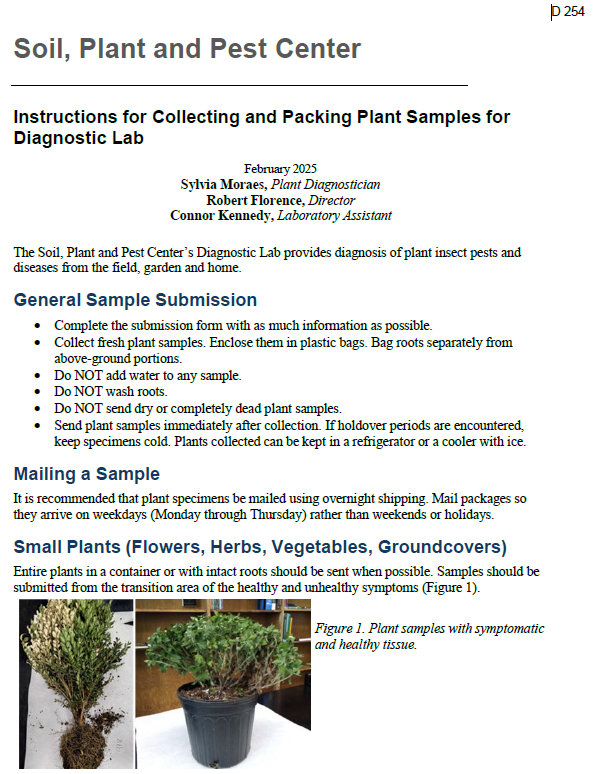Please include your submission sheet and payment or receipt with sample.
Mail packages to arrive on weekdays (Monday through Friday) rather than weekends or holidays.
Dead plants cannot be cultured for pathogens, they are too far gone.
Suspected Herbicide Damage
We cannot confirm herbicide damage. Please visit the Tennessee Department of Agriculture if you suspect you are dealing with herbicide injury.
Mold, Structural Wood, or Fell Tree Decay
We do not test for household mold, structural wood decay, or fell tree wood decay.


